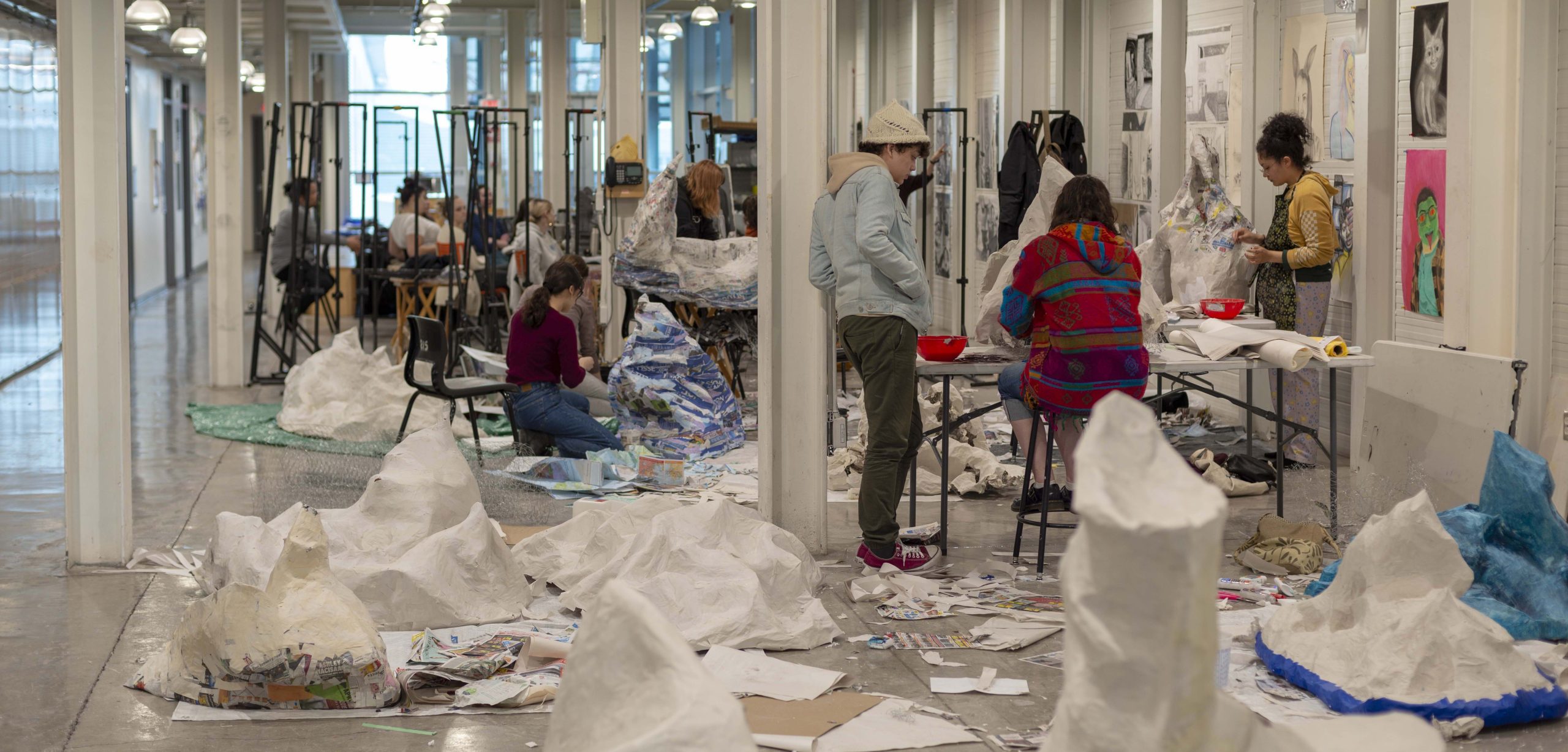
NSCAD has officially launched a new Academic Accessibility policy that will address many students’ accessibility needs and push the university’s accessibility framework forward.
“This policy proactively addresses the needs of our community and allows us to demonstrably change how we work. It is a big step to towards NSCAD becoming a barrier-free, inclusive learning environment,” says NSCAD President Dr. Peggy Shannon.
“Through this policy, we can significantly advance our academic support and teaching and learning initiatives to prepare us to be universally accessible when we move to our new campus.”
New policy reflects best practices
NSCAD has been working on improving accessibility since the Government of Nova Scotia passed the Bill 59: Accessibility Act to make Nova Scotia accessible by 2030. The university convened an Accessibility Working Group in 2020 made up of students, faculty, staff, alumni, and members of the community at large who led a gap and barrier analysis. They produced a report which led to a five-year Accessibility Framework that aims to bring NSCAD into compliance with the standards for each of the areas above within the required timeframe.
Integral to the framework was an update of the policy and guidelines for students with disabilities.
The updated policy reflects best practices, says NSCAD Interim Director of the Office of Opportunity and Belonging Jennifer Abrahamson, who has been supporting students with accessibility and accommodation needs for the last year and a half.
“When I stepped into the role, it became apparent to me that the previous policy was not serving our students, or the faculty and technicians who support students, with recommended accommodations on a daily basis. It is my hope that the new policy will help all students with disabilities feel acknowledged and provide clearer guidance,” she says.
"I am excited to get these changes out to improve the support we provide to students’"
The policy has enabled Abrahamson to adjust university processes to reduce barriers for students.
The Office of Opportunity and Belonging (OOB) also developed a new protocol that clearly outlines roles and responsibilities at NSCAD, from the accessibility office to faculty and technicians, to the role students play in implementing academic accommodations.
“We revised the accommodation letter and agreement, the student informed confidentiality agreement and consent form, and an optional assessment form for those providing documentation,” says Abrahamson. “I am excited to get these changes out to improve the support we provide to students.”
Additionally, a new Academic Learning Strategist, Jess Johnson, started at NSCAD’s OOB on June 12. Johnson will work closely with Abrahamson and with NSCAD Director of Teaching and Learning Noelle Peach.
Their role is key in realizing the policy, working with students, and helping Peach and her team do their job.
Shannon says while there are still real barriers to making NSCAD’s Fountain and Academy campuses fully physically accessible, the policy gives the university a structure that will reduce many other academic barriers and allow the university to move beyond accommodation.
